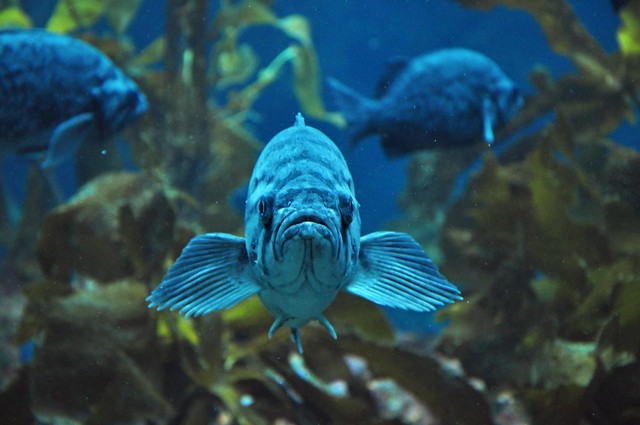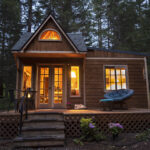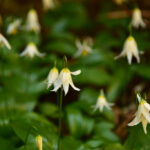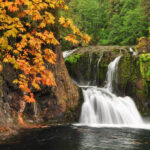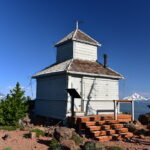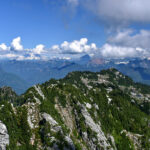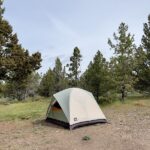In October I was lucky enough to attend a library conference in Monterey, California and spend some time exploring the area. Here’s how my trip went.
San Francisco

This very cool mosaic on a staircase is known as the 16th Avenue Tiled Steps.

A typical foggy morning in San Francisco. Fortunately the fog burned off around lunchtime.

The remains of the Sutro Baths.

Looking down on the Fort Mason Center, an old military fort that has been converted into shops and restaurants.

This is part of the fabulous Outdoor Exploratorium at Fort Mason. These are wind arrows and demonstrate how even a slight change in altitude can mean a difference in the direction the wind is blowing.

The Wave Organ, which allows you to hear underwater “music” thanks to submerged pipes.

A Yoda fountain in the Presidio.

The Golden Gate Bridge as seen from Fort Point.
San Jose, Santa Cruz, and Mountain View

The Winchester Mystery House, which is very cool but very overpriced.
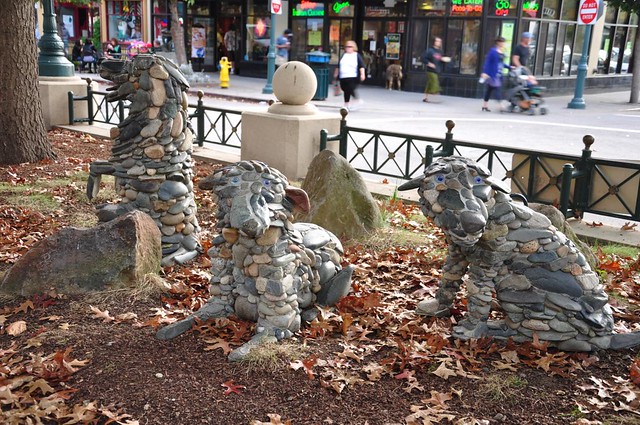
I loved this sculpture in downtown Santa Cruz. It’s called “Rocky Dogs” by Michael Eckerman.

Hollerith Electric Tabulating System replica at the Computer History Museum. The 60 million cards punched in the 1890 census were fed manually into machines like this for processing. The dials counted the number of cards with holes in a particular position. The sorter on the right would be activated by certain hold combinations, allowing detailed statistics to be generated. We’ve come a long way since then!

Early calculators from the 1970s at the Computer History Museum.

A RAMAC actuator and disk stack from 1956 at the Computer History Museum. This is the heart of the world’s first disk drive. It has 50 24″ disks that spin at 1,200 RPM and hold 5 million characters of information.

Charles Babbage (1791-1871) was an English mathematician who came up with a design for a mechanical calculating engine. He never managed to build one in his lifetime, but this Engine No. 2 was built in 2008 at the Science Museum in London. Every day the Computer History Museum demonstrates how it works.
Monterey, Pacific Grove, and Carmel
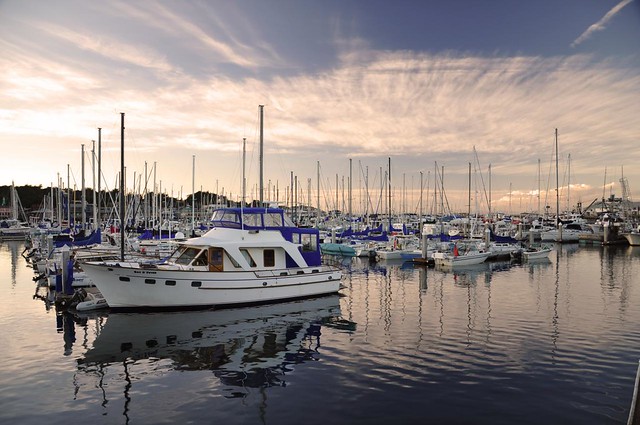
The harbor in Monterey, as seen from the public wharf.

Fisherman’s Wharf in Monterey.

The Custom House, built around 1821 by the Mexican government, is California’s first historic landmark and its oldest public building. It is where the first American Flag was raised on July 7, 1846, declaring California part of the United States. It is now party of the Monterey State Historic Park.

This building was built by English seaman Jack Swan in 1846-47 as a lodging house and tavern for sailors. He built the wood portion of the building in about 1845. He added the adobe portion in 1847, as the actual theater. It is now part of the Monterey State Historic Park.

The Pacific House Museum is part of the Monterey State Historic Park and has some very nice exhibits inside that tell the history of this area.

The very cool Coral Reef exhibit at the Monterey Bay Aquarium.

The jellyfish were completely mesmerizing!

Peering into the underwater world of the kelp forest.

The anchovies swim in circles over and over and over in this circular tank.

No vacation is complete without visiting the local public library! 🙂

A cute little cove at Fanshell Overlook along 17-Mile Drive.

The famous Lone Cypress tree along 17-Mile Drive. This tree is about 250 years old.

Sunset at Carmel River State Beach.

Footprints in the sand at Carmel River State Beach.

Sunset at the Asilomar State Marine Preserve near Pacific Grove.
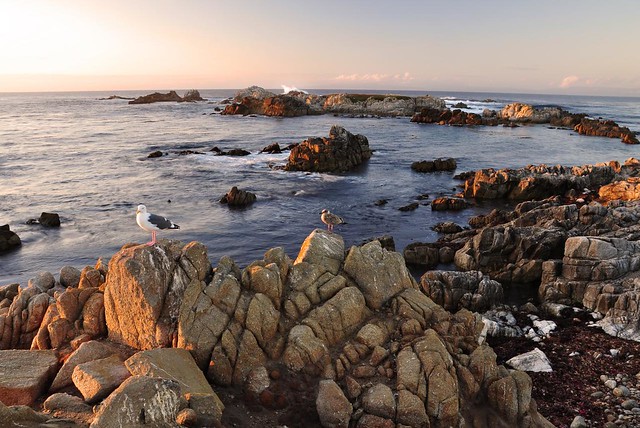
Another beautiful evening at the Asilomar State Marine Preserve near Pacific Grove.

While watching sunset, flocks of pelicans kept gliding overhead. COOL!

The Point Pinos Lighthouse, the only lighthouse I’ve ever seen that is surrounded by a golf course.
Big Sur

Sea Lion Cove at Point Lobos State Preserve.

Beautiful little China Cove at Point Lobos State Preserve.

The top of a kelp forest as seen at Point Lobos State Preserve. Doesn’t look like much on the surface, but after seeing what it looks like underwater at the Monterey Bay Aquarium the day before I’ll never look at kelp the same way again.

714-foot-long Bixby Creek Bridge on Highway 1.

Looking north up the California coast from the appropriately-named Hurricane Point (it was very windy).

McWay Falls at Julia Pfeiffer Burns State Park. The waterfall used to plunge right into the ocean because there never used to be a beach here, but a landslide north of here in 1983 sent lots of dirt into the ocean and much of it washed up here.

Redwood trees at Pfeiffer Big Sur State Park.

Waves pour through one of the keyholes in the rocks at Pfeiffer Beach.

A beautiful evening at Pfeiffer Beach.

The very touristy town of Carmel looks like something straight out of a Thomas Kinkade painting.

The chapel at the Carmel Mission, which was established by Padre Junipero Serra in 1770.
